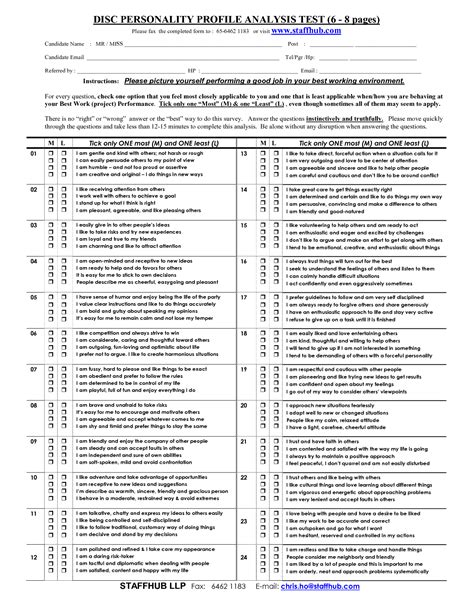Ever felt like you’re speaking a different language than your colleagues, friends, or even family? Or perhaps you've wondered why some tasks feel effortlessly natural to you, while others drain your energy? I've been there. Once, in a new team role, I found myself constantly clashing with a teammate, leading to frustration and stalled projects. It wasn't until I stumbled upon the power of understanding behavioral styles that things clicked. A simple printable DISC assessment became my Rosetta Stone, revealing how our inherent communication preferences were causing friction. This isn't just about labels; it's about understanding the beautiful, complex ways we're wired, and how that impacts every interaction.
You’re here because you’re looking for a way to gain clarity – whether for yourself, your team, or your relationships. You want practical insights, not just theory. And trust me, navigating human dynamics without a map can feel like trying to solve a puzzle with half the pieces missing. This guide is designed to be that map. We’ll dive deep into what a printable DISC assessment offers, how to use it effectively, and uncover actionable strategies to leverage its power for personal growth and stronger connections.
---
The Power of Self-Discovery: Understanding Your Personal Style

At its core, the DISC assessment is a tool for self-awareness. It helps you understand your natural behavioral tendencies, preferences, and how you typically respond to challenges, influence others, handle routines, and follow rules. Knowing your own dominant style (Dominance, Influence, Steadiness, or Conscientiousness) is the first step towards unlocking true personal and professional growth.
- Identifying Your Core Strengths: Understanding if you're naturally D (decisive, results-oriented), I (influential, optimistic), S (stable, supportive), or C (conscientious, analytical) helps you lean into what you do best.
- *Personal Scenario:* "When I first took a printable DISC assessment, I realized my high 'C' meant I instinctively sought out data and details. This helped me reframe my role, focusing on analytical tasks where I truly excelled, rather than forcing myself into purely 'people' roles."
- Recognizing Your Blind Spots: Every strength has a flip side. A high D might be seen as impatient, an I as disorganized, an S as resistant to change, and a C as overly critical. Awareness is key to managing these.
- Improving Self-Regulation: When you understand *why* you react a certain way, you gain the power to choose a different response. Feeling stressed? Your DISC profile might explain why certain pressures hit harder.
- Boosting Confidence: Operating within your natural behavioral style feels more authentic and sustainable, leading to increased confidence in your actions and decisions.
- Setting Realistic Goals: Tailoring your goals to align with your natural inclinations, rather than trying to fit into a mold that doesn't suit you.
- Understanding Stress Triggers: Each style has unique stressors. Identifying yours can help you proactively manage your well-being.
- Navigating Personal Challenges: Applying DISC insights to personal challenges, like managing household tasks or planning family events, by understanding how your style impacts these areas.
- Embracing Your Uniqueness: There’s no "best" DISC style. Embrace what makes you unique and how your preferences contribute to the world around you.
---
Boosting Team Collaboration: Harmonizing Diverse Personalities

A team is rarely composed of identical individuals (and thankfully so!). The real magic happens when diverse styles learn to work in sync, complementing each other's strengths. A printable DISC assessment can be a game-changer for team dynamics, turning potential friction points into powerful synergies.
- Decoding Team Dynamics: Understanding the DISC profiles of your teammates helps you predict how they might react, prefer to communicate, or approach tasks.
- *Personal Scenario:* "Our team had a project with a super tight deadline. My 'D' manager was pushing hard, while our 'S' team member was feeling overwhelmed by the rapid changes. Using insights from a printable DISC assessment we’d done, I helped mediate by translating the 'D's urgency into a clear, supportive action plan for the 'S', bridging the communication gap."
- Optimizing Communication: Learning to "speak the language" of each style drastically reduces misunderstandings. A D needs bullet points, an I thrives on enthusiasm, an S prefers calm and clarity, and a C wants data and logic.
- Assigning Roles Strategically: Placing team members in roles that naturally align with their DISC strengths (e.g., a high C for quality control, a high I for brainstorming) maximizes efficiency and job satisfaction.
- Facilitating Conflict Resolution: Understanding underlying behavioral drivers helps de-escalate conflicts by addressing the root cause of stylistic differences, rather than just the surface-level disagreement.
- Building Empathy: When you see a colleague's behavior through the lens of their DISC style, it's easier to empathize and less likely to take things personally.
- Enhancing Brainstorming Sessions: Ensuring all styles feel heard and can contribute effectively, from the bold ideas of the 'I' to the meticulous analysis of the 'C'.
- Streamlining Decision-Making: Recognizing how different styles approach decisions can help leaders guide the process more inclusively and efficiently.
- Creating a Culture of Appreciation: Actively appreciating the unique contributions of each style fosters a more positive and productive team environment.
---
Enhancing Leadership & Management: Guiding with Insight
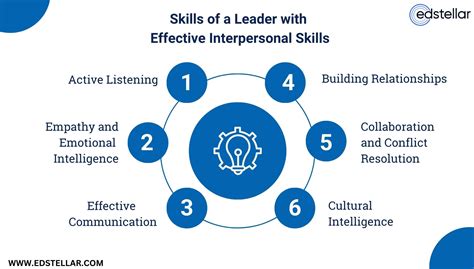
Leaders aren't just managers; they are facilitators of potential. Understanding the DISC profiles within their teams allows leaders to adapt their approach, motivate effectively, delegate wisely, and truly empower their people. For any leader, having a strong grasp of the insights from a printable DISC assessment for their team is like having a superpower.
- Tailoring Motivational Strategies: What motivates a D (challenges, results) will differ from what motivates an S (stability, support). Leaders can customize their approach.
- Effective Delegation: Assigning tasks not just by skill, but by behavioral preference. A high C will excel at detailed analysis, while a high I might be best for networking and presentations.
- *Personal Scenario:* "I once had a manager who used her understanding of our DISC profiles to assign projects. She knew I, as a high 'C', loved digging into data, and she assigned me a complex research task. Meanwhile, she gave a high 'I' on our team the lead on a client presentation. It felt so intuitive and empowering; we all did our best work."
- Providing Constructive Feedback: Adapting your feedback style to the recipient's DISC profile to ensure it's heard and acted upon.
- Coaching for Growth: Identifying specific areas for development based on an individual's natural style and providing targeted coaching.
- Leading Change Effectively: Understanding how different styles react to change (Ds embrace it, Is are enthusiastic, Ss resist, Cs need data) helps leaders manage transitions smoothly.
- Building Stronger Relationships with Direct Reports: Demonstrating that you see and understand them as individuals, not just employees.
- Strategic Team Building: Intentionally assembling teams with a healthy mix of DISC styles to ensure comprehensive perspectives and capabilities.
- Developing Future Leaders: Identifying potential in team members by recognizing how their natural DISC strengths could be leveraged in future leadership roles.
---
Navigating Relationships: Building Bridges Beyond the Workplace

While DISC assessments are often associated with professional settings, their principles extend beautifully into personal relationships. Understanding your partner, family members, or friends through the DISC lens can foster deeper empathy, reduce common misunderstandings, and strengthen bonds.
- Improving Marital/Partnership Communication: Recognizing how your partner's DISC style influences their communication, decision-making, and needs can revolutionize your relationship.
- *Personal Scenario:* "My partner is a high 'S', and I'm a higher 'D'. Early in our relationship, my directness often felt abrupt to them, while their need for harmony sometimes felt slow to me. Using the framework of a printable DISC assessment helped us see these differences not as flaws, but as natural styles, teaching us to adapt how we communicate our needs and desires."
- Parenting with Awareness: Tailoring your parenting style to your child’s emerging behavioral preferences. Some kids need more direction, others more freedom, others more emotional support.
- Enhancing Friendships: Understanding why a friend might be consistently late (high I) or incredibly organized (high C) can lead to more acceptance and less frustration.
- De-escalating Family Disputes: Applying DISC insights to understand the underlying motivations during family disagreements.
- Choosing Social Activities: Understanding how different styles prefer to socialize (e.g., a high I loves group events, a high C might prefer quiet one-on-one time).
- Managing Expectations: Recognizing that people operate from different perspectives and adjusting your expectations accordingly.
- Fostering Empathy and Patience: Seeing the world through someone else's behavioral lens naturally cultivates greater understanding.
- Celebrating Differences: Instead of seeing differences as barriers, viewing them as opportunities for growth and complementary strengths within a relationship.
---
Career & Personal Development: Charting Your Path with Clarity
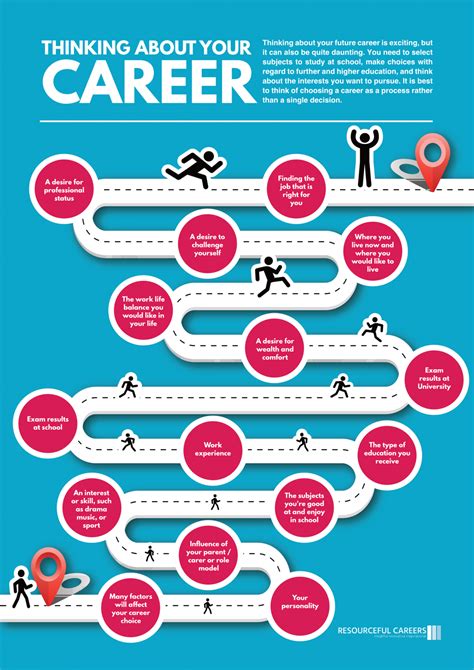
Your career is more than just a job; it's a significant part of your life's journey. A printable DISC assessment isn't just for current roles; it’s an invaluable tool for career exploration, personal development, and ensuring you’re on a path that truly resonates with your authentic self.
- Career Aptitude and Fit: Identifying career paths that align naturally with your DISC profile, leading to greater job satisfaction and success.
- *Personal Scenario:* "After taking a detailed printable DISC assessment, I realized my innate 'C' tendency meant I thrive in roles requiring precision and analysis. It confirmed my gut feeling that a career in creative marketing, while fun, wasn't my long-term fit, and nudged me towards project management where I could leverage my strengths daily."
- Interview Preparation: Understanding your strengths and how to articulate them based on your DISC style, and even anticipating how interviewers of different styles might approach questions.
- Developing New Skills: Pinpointing skills that might be challenging for your natural style but are necessary for growth, and creating a targeted development plan.
- Improving Time Management: Tailoring productivity strategies to your DISC style (e.g., a D might thrive on strict deadlines, an I on flexible creative blocks).
- Mentorship and Coaching: Identifying mentors or coaches who can best support your unique developmental needs based on your style.
- Conflict Management Skills: Learning how to navigate disagreements effectively, both within your own style's tendencies and when interacting with others.
- Personal Branding: Crafting a personal brand that authentically represents your strengths and preferences.
- Lifelong Learning: Continuously using DISC as a framework for self-reflection and ongoing personal and professional improvement.
---
Choosing the Right Printable DISC Assessment: What to Look For
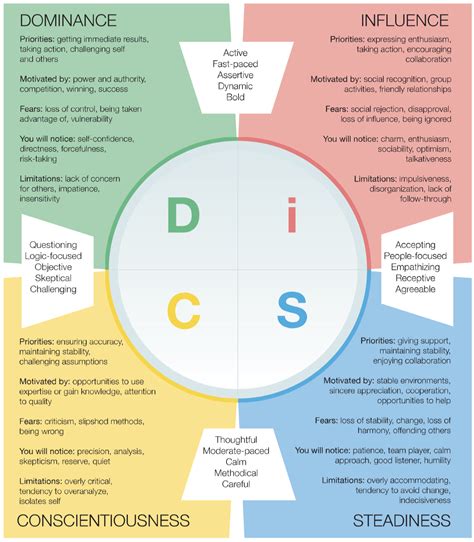
Not all printable DISC assessments are created equal. Just like you wouldn't use a dull knife to carve a masterpiece, you need a quality tool to get meaningful insights.
- Reliability and Validity: Look for assessments from reputable sources that have been scientifically validated. This ensures the results are consistent and accurate.
- Clarity of Reports: The best assessments provide clear, easy-to-understand reports that go beyond just a quadrant letter. They offer detailed explanations, actionable insights, and personalized recommendations.
- *Personal Scenario:* "I once downloaded a 'free' printable DISC assessment that was just a few questions and gave me a letter. It felt vague and didn't offer any real insights. I learned the hard way that investing in a more comprehensive, reputable version was far more valuable for truly understanding my profile."
- Interpretation Guides: A good assessment will come with or link to resources that help you interpret your results accurately and avoid common misconceptions.
- Application Tips: Does the assessment guide you on *how* to use the information in real-world scenarios? This is crucial for turning data into actionable strategies.
- Online vs. Printable: While we're focusing on printable, many good online assessments offer a printable report. This can often provide a more dynamic and interactive experience initially.
- Format and Usability: Is the printable version well-designed, easy to read, and convenient to fill out and reference?
- Cost vs. Value: While free options exist, often a paid, validated assessment offers significantly more depth and utility. Consider your specific needs and budget.
- Support and Resources: Does the provider offer additional training, workshops, or articles to help you maximize your understanding and application of DISC?
---
Tips for Personalizing Your DISC Insights
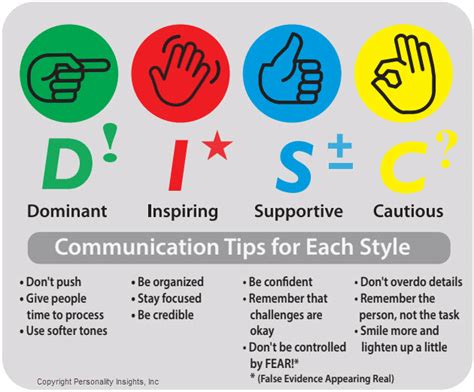
Getting your printable DISC assessment results is just the first step. The real power comes from making those insights uniquely yours and applying them to your specific life.
1. Reflect Deeply: Don't just skim your report. Take time to sit with the information. Do certain statements resonate strongly? Are there any surprises? My favorite strategy is to discuss my results with a trusted friend or colleague; sometimes, they see things you don't!
2. Connect to Real-Life Scenarios: Think about recent interactions or challenges. How do your DISC insights shed light on those situations?
3. Journal Your Observations: Keep a journal of how your DISC style (and others') plays out in daily life. This reinforces learning and helps you spot patterns.
4. Share (Appropriately): Discussing your DISC profile with close team members or family can open up lines of communication and mutual understanding. But remember, it's a tool, not an excuse – use it for growth, not to pigeonhole yourself or others.
5. Focus on Growth Areas: Identify one or two behaviors you want to develop or modify based on your DISC report. Small, consistent steps lead to big changes.
6. Seek Feedback: Ask others if they see your DISC profile reflected in your behavior. Their perspective can offer valuable external validation or challenge your self-perception.
---
Common Pitfalls: What to AVOID When Using a DISC Assessment

While incredibly helpful, a printable DISC assessment is a tool, not a magic wand. There are a few traps you'll want to avoid to ensure you get the most out of it. Don't be like me and think a single assessment defines someone forever!
- Stereotyping Others: The biggest mistake! DISC describes *how* people tend to behave, not *who* they are. It's a preference, not a prison. Everyone is a unique blend, and context matters.
- Using It as an Excuse: "Oh, I'm a High D, so I *have* to be direct." No. It explains a tendency, but you always have the choice to adapt your behavior.
- Over-Reliance on Results: Don't let the assessment replace genuine human interaction and observation. It's a starting point for understanding, not the end-all-be-all.
- Taking It Too Seriously (or Not Seriously Enough): It's not a definitive, unchangeable label, but it's also not just a fun quiz. Approach it with curiosity and a desire for growth.
- Ignoring Context: People adapt their styles based on the situation. Someone might be a "High I" at home but needs to be more "C" at work.
- Using It for Hiring Decisions Alone: DISC can inform hiring, but it shouldn't be the sole deciding factor. Skills, experience, and cultural fit are equally, if not more, important.
- Forgetting That Everyone Has All Four Styles: We all have D, I, S, and C within us; it's about which ones are most dominant and natural.
---
Conclusion

Stepping into the world of behavioral assessments with a printable DISC assessment is an exciting journey of discovery. It offers a unique lens through which to understand yourself, your team, and those closest to you. Remember, this isn't about fitting into a box, but about understanding the beautiful, diverse ways we're all wired and how to leverage those differences for greater connection and effectiveness.
Armed with these insights, you're not just taking a test; you're gaining a superpower for empathy, communication, and growth. So go ahead, find that perfect printable DISC assessment, dive into your results, and start building those bridges. You've got this!
